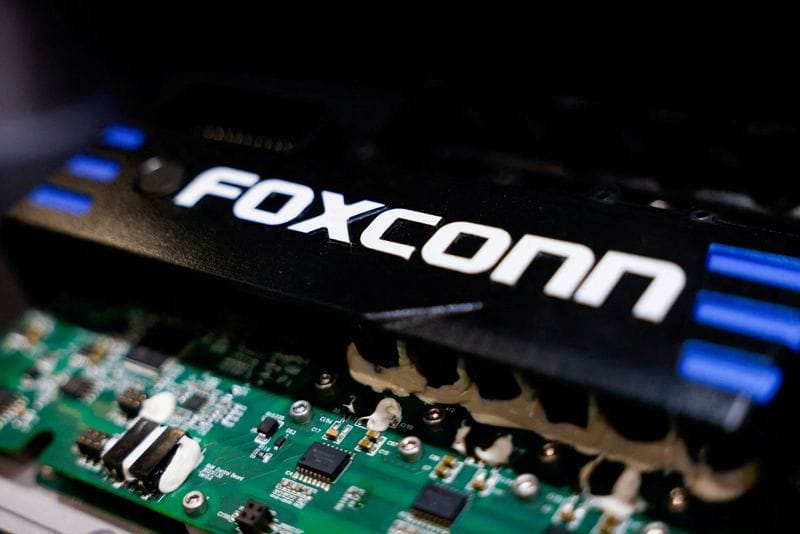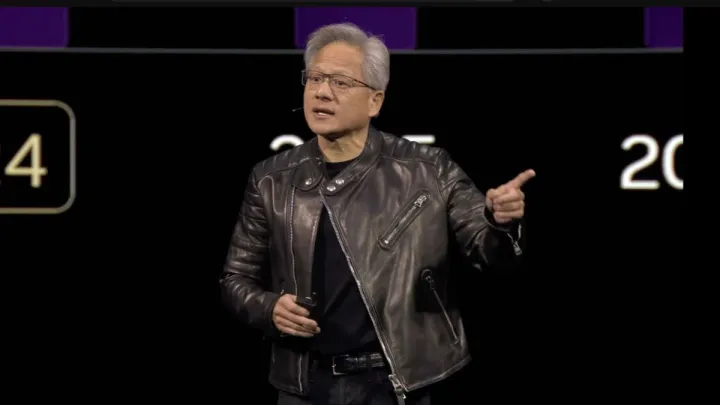Foxconn Bets Big on AI: $1.37 Billion Investment to Build Taiwan’s Next Supercomputing Powerhouse

Foxconn makes a massive move into artificial intelligence
Foxconn, the world’s largest electronics manufacturer, is taking another bold step into the world of artificial intelligence. The company announced that its board of directors has approved an investment of up to NT$42 billion (around $1.37 billion) to develop an AI compute cluster and a supercomputing centre.
According to a company filing released late Monday, the investment will be made using Foxconn’s own funds between December 2025 and December 2026. This marks one of the company’s largest single AI-related investments to date and underscores its determination to move beyond traditional electronics manufacturing.
A strategic leap beyond smartphones
Foxconn, officially known as Hon Hai Precision Industry Co. Ltd, is best known for assembling iPhones for Apple and other global tech giants. But as the consumer electronics market matures, the company has been searching for new ways to grow—and artificial intelligence is emerging as its next big frontier.
The new AI compute cluster and supercomputing centre are expected to play a central role in expanding Foxconn’s cloud computing services and advancing its three smart platforms strategy. While the company hasn’t detailed what those platforms include, they are believed to focus on smart manufacturing, smart electric vehicles, and smart healthcare—three areas Foxconn sees as key to its future.
Building the backbone for next-gen AI innovation
Although Foxconn didn’t specify where the new facilities will be located, sources close to the matter say the investment will take place in Taiwan, the company’s home base and one of the world’s most critical technology hubs.
The new supercomputing centre will significantly boost Foxconn’s ability to handle massive amounts of data, process complex AI models, and support advanced computing needs for clients across various industries. This could help the company evolve from a hardware assembler into a full-fledged AI infrastructure provider, positioning it alongside other major players in the AI ecosystem.
Tapping into the AI gold rush
Foxconn’s $1.37 billion plan comes at a time when the world’s biggest tech companies—from Nvidia and Microsoft to Amazon and Google—are racing to expand their AI and cloud computing capabilities. The surge in demand for generative AI tools, machine learning, and cloud-based data analytics has created a global race for computing power.
By investing heavily in AI infrastructure, Foxconn is looking to secure a place at the heart of that transformation. Instead of just supplying components for AI devices, the company aims to be part of the digital backbone that powers the AI revolution.
Partnership with Nvidia marks a turning point
Earlier this year, Foxconn made headlines when it announced a major partnership with Nvidia to build an AI data centre in Taiwan. That facility, expected to operate with 100 megawatts of power, will be designed to train AI models and process massive data workloads for industrial and enterprise clients.
The upcoming AI compute cluster and supercomputing centre appear to build directly on that partnership, signaling that Foxconn wants to deepen its role in the high-performance computing space.
Foxconn’s growing collaboration with Nvidia also highlights how traditional hardware manufacturers are transitioning into AI-era service providers, leveraging their manufacturing experience to develop cutting-edge computing infrastructure.
Expanding its AI footprint globally
Foxconn’s ambitions go beyond Taiwan. In August 2025, the company announced plans to manufacture data centre equipment with Japan’s SoftBank at its former electric vehicle factory in Ohio, USA. The project, called Stargate, aims to strengthen U.S. artificial intelligence infrastructure and promote cooperation between Asian and American tech firms.
The Ohio initiative and the new investment in Taiwan both reflect Foxconn’s broader global vision—using its expertise in hardware manufacturing to power the next wave of AI development across continents.
A shift from hardware to high-tech services
For decades, Foxconn has been synonymous with electronics assembly, producing millions of smartphones, laptops, and devices for global brands. But the company’s leadership has been clear that it no longer wants to rely solely on low-margin manufacturing.
Instead, Foxconn is reinventing itself as a technology solutions provider—focusing on cloud computing, AI data services, and automation. Its push into supercomputing is part of a larger strategy to build the infrastructure that future AI companies will depend on.
By developing its own AI clusters, Foxconn could eventually offer AI-as-a-Service (AIaaS) solutions to enterprises that need powerful computing capabilities but lack the hardware or expertise to build them in-house.
Why this matters for Taiwan and the global AI race
Taiwan has long been a cornerstone of the global tech supply chain, housing industry leaders like TSMC, which produces the world’s most advanced semiconductors. With Foxconn’s new AI investment, Taiwan could further cement its role as a global hub for next-generation computing and AI innovation.
The project also strengthens the island’s strategic importance amid growing competition between the U.S. and China for AI dominance. As countries and companies race to secure computing power, Foxconn’s move ensures Taiwan remains at the center of technological progress.
The future of Foxconn’s AI ecosystem
While details about the AI compute cluster and supercomputing centre remain limited, the company’s direction is clear: Foxconn wants to build the foundation for the next era of digital transformation.
By investing heavily in cloud computing, AI infrastructure, and global partnerships, the company is positioning itself to compete not just as a manufacturer, but as a full-scale AI technology powerhouse.
Over the next decade, Foxconn’s evolution could mirror that of tech leaders like Amazon and Microsoft—companies that started in one space but grew into major players in the cloud and AI sectors.
Final thoughts
Foxconn’s $1.37 billion investment marks a pivotal moment in the company’s transformation. What began as a manufacturing empire is rapidly evolving into an AI-driven innovation leader.
As the global demand for computing power continues to surge, Foxconn’s strategy to build supercomputing infrastructure could prove to be one of its most important and forward-thinking decisions yet.
The move underscores a simple truth about the future of technology: the companies that power artificial intelligence today will shape the world of tomorrow.



